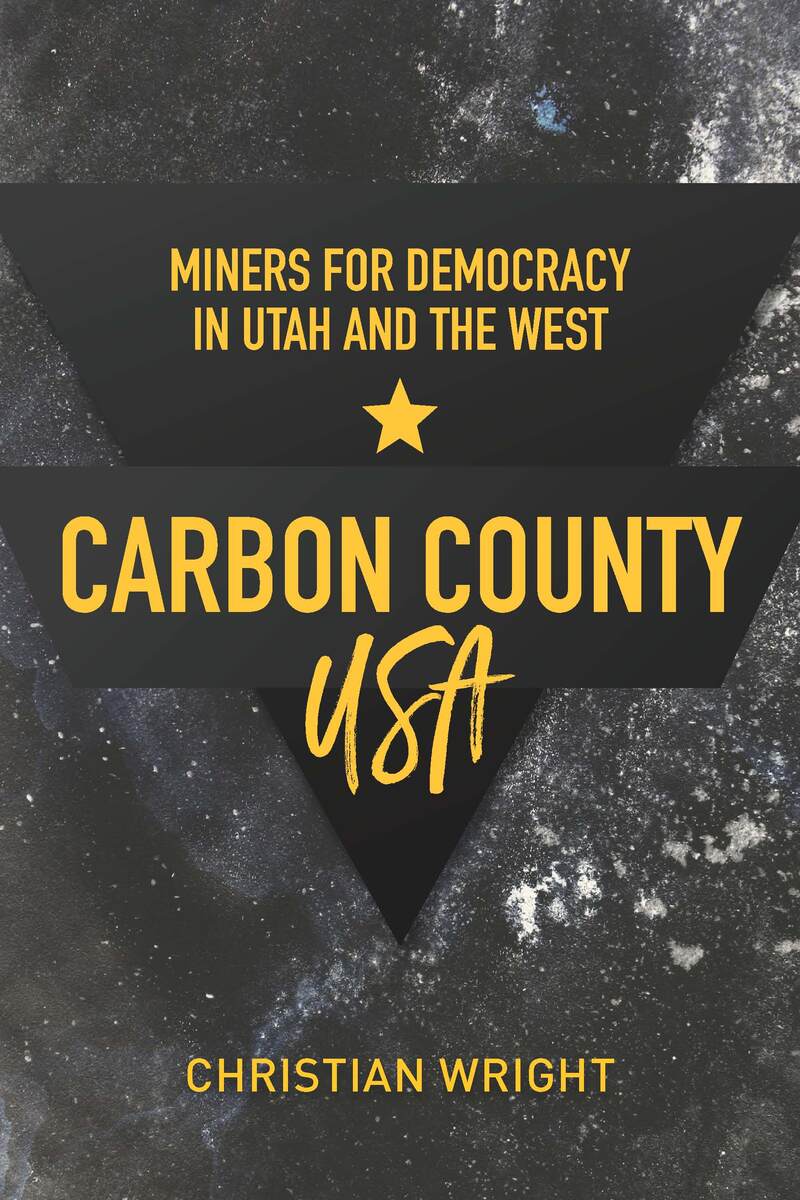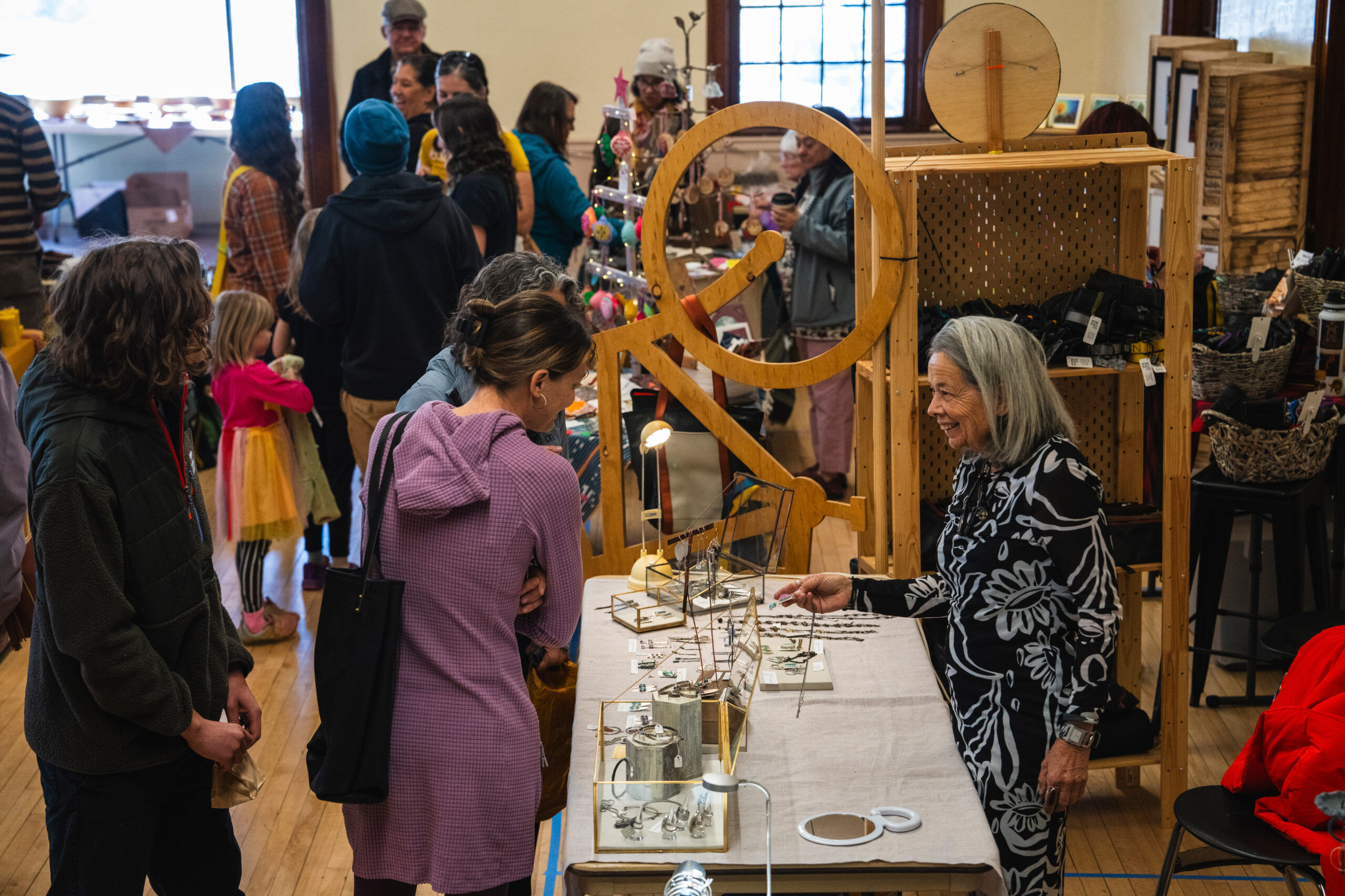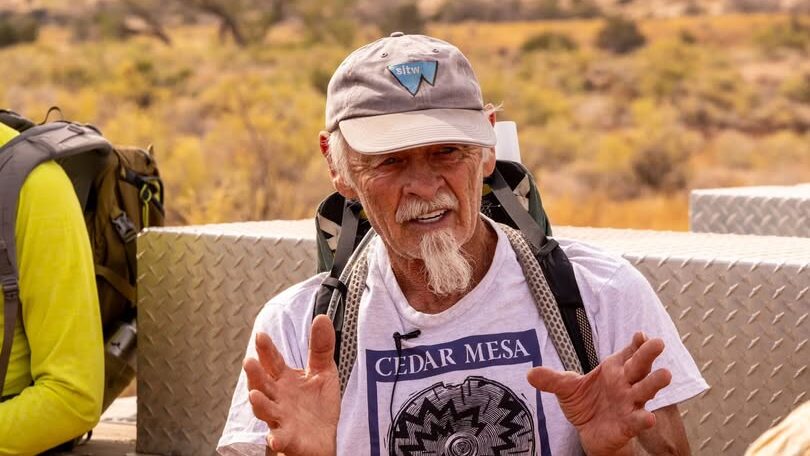Some information may be outdated.
What might workers in Moab’s contemporary tourism economy have to learn from mine workers of the last century? A whole lot, according to Christian Wright, historian and author of the recently published “Carbon County USA: Miners for Democracy in Utah and the West.”
Wright is the featured speaker of the Moab Museum’s Sept. 15 virtual event titled “Canyon Country on Strike: Coal Miners, Labor Unions, and Sexual Revolution in Southeast Utah.”
For the event, Wright will lead a discussion about the history and legacy of labor in Utah along with Moab Museum staff member Christy Williams Dunton. The conversation will explore the topics of labor unions, mine workers, and women in the workforce—and the implications of labor revolution here in Utah today.
Wright’s book, published last year by the University of Utah Press, looks at the history of the United Mine Workers of America and coal mining in the West, concentrating on the coal miners of Carbon and Emery counties in Utah. The book explores historic labor events in the 20th century, celebrating coal miners’ victories in improving workplace conditions while also looking critically at places where labor unions failed.
The event is part of the Moab Museum’s Tuesdays with the Museum series. It will be held on Zoom and simultaneously broadcast on Facebook Live, and recordings of the presentations will be available on the museum’s website. It begins at 6:30 p.m. and is open to the public at no charge.
“I want to celebrate what unions can be and share that history, and look critically at why unions fell apart,” Wright told the Moab Sun News, adding, “I believe that tourism workers have a lot to learn from those who came before us.”
Wright pointed to the struggles Moab’s service economy workers face in accessing basic needs like housing and drew a parallel to the exploitative conditions that led previous generations of workers to create unions with which to leverage their collective power and demand better treatment.
“It’s not difficult to find people [in Moab today] who are working yet living in their cars,” he said. “It’s absurd we live in a world where people work in highly profitable jobs and make poverty wages.”
Wright said that, while he hears widespread acknowledgment that the conditions for many workers are unacceptable, this sentiment hasn’t been translating into action. History, Wright said, can give insight as to why workers struggle to organize today and the importance of listening to criticisms of unions to improve future organizing efforts.
“I don’t know exactly what a revitalized labor movement in America would look like,” Wright said, “but I do think that if we learn our history, look at how others have organized in the past…we’ll be better at it. We’ll know what the options can look like.”
Wright has a B.A. in Political Science from George Washington University and an M.A. in United States history from Northern Arizona University, where he served as a teaching assistant and concentrated in public history, labor, environmental and borderlands issues in the American Southwest.
His master’s thesis, “For This Union to Survive: The United Mine Workers of America and the Transformation of Utah’s Coal Industry, 1966-1985,” used a regional case study to explore a pivotal decade in the transformation of power and control in American workplaces. Additional research expanded the scope of that project to produce “Carbon County USA.”
Originally from Atlanta, since 2008 he has lived and worked primarily in Utah, Colorado and Arizona, as a commercial river guide and an interpretive ranger for the National Park Service.
“Carbon County USA” is Wright’s first book. It is available locally at Back of Beyond Books (83 N. Main St.).
Moab Museum hosts virtual event ‘Canyon Country on Strike’
“I do think that if we learn our history, look at how others have organized in the past…we’ll be better at it.”
– Christian Wright
When: Tuesday, Sept. 15, at 6:30 p.m.
Where: Streaming online at on the Moab Museum Facebook page
Cost: Free
Contact: 435-259-7985 or go to moabmuseum.org
Appreciate the coverage? Help keep local news alive.
Chip in to support the Moab Sun News.





